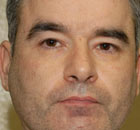For anyone on the progressive side of politics, the prospect of a Tory government being formed at the next general election should fill them with anger.
The core of Tory policy, under cover of rhetoric dealing with the financial crisis, is to attack those who had no responsibility in creating the crisis. Those who primarily did would, on the contrary, be protected.
Those on average incomes, the least well-off, the unemployed, teachers, health workers and others would suffer the effects of a savage attack on public spending. Bankers and those with large sums of money to pass on as inheritances would be protected. These are open class war policies with a vengeance.
The Tories, having largely dropped the cuddly disguise David Cameron tried to project, have reverted to Thatcherism mark II.
To divert attention from the harsh economic medicine that Cameron would be handing out, Britain would also be in for a dose of right-wing ideology and repressive policies.
That is why the Tories present immigrants and not bankers as the source of the economic problems confronting the country.
We would have a great deal of talk about fighting crime while, as in London, police numbers would probably be cut.
Public money would be squandered in an ideological campaign against people who have chosen not to marry, or those who separate or divorce, through "recognition of marriage in the tax system" with further cuts to pay for this.
A meaningful fight against climate change would be abandoned.
This week's GDP figures of only 0.1 per cent growth show just how feeble the economic recovery is. The Tories would threaten this by reining back the stimulus for demand created by public spending.
Tory policies are, therefore, not only reactionary but economically illiterate. They do nothing to address the real needs of the economy - which requires investment to promote growth - as well as doing social and environmental damage.
Any supporter of coherent economic policy and social justice, and anyone who cares about the future of the planet, has to be opposed to such right-wing policies.
The Tories' platform is also not popular. Despite blatant and flat-out campaigning for the Conservatives by almost all the print media and large parts of the electronic media, and despite Labour being in office in the worst economic crisis for 70 years, the Tories have scarcely succeeded in raising their level of support above 40 per cent.
Labour's problem is not the high level of support for the Tories but the low level of support for itself. Therefore, the crucial issue is not the popularity of right-wing Tory policies, as the facts show they are not popular, but the need to develop and implement a progressive alternative to them.
Such progressive policies, to be effective, must support both those on middle incomes and the less advantaged. These together constitute a large majority of the electorate and their combined support has been, and will always continue to be, sufficient to ensure progressive victories.
What is hopeless is concentrating on attempting to win over the well-off - "champagne socialists." Progressive policies in Britain have never needed their support to win elections nor, of course, have they received it.
If "champagne socialism" was morally repellent during the boom, then in a period of economic crisis where there are therefore reduced resources, it is directly electorally damaging.
"Champagne socialist" policies mean there are less resources for those on middle incomes and the less well off who constitute the majority of the electorate. Nor are people interested in abstract "GDP growth" as they want to know whether they will be better off or not.
The reason policies like the 50 per cent tax band or the taxes on bankers' bonuses are popular is because they transfer resources from a small, privileged minority to people on middle incomes and the less well off. People want real economic benefits for themselves, not abstract talk about "recovery" if the proceeds of that go to the well-off.
Wars in Iraq and Afghanistan, as well as the Trident programme, are not only morally and politically wrong but they increase the financial strain on ordinary voters. When the world is faced with the need to conserve resources to deal with climate change, which will affect the lives of everyone, wasting resources on grotesque wars and military programmes is particularly unacceptable.
The key terrain on which Labour must fight the election is that it protects those on middle incomes and the least advantaged, against the Tories who would transfer resources from the average elector to the well-off.
But nevertheless, it is clear that not all those who support progressive policies are going to vote Labour. Indeed, a widespread debate on many issues is taking place among those who support a progressive agenda. In such a situation it is therefore vital that Labour not only hammers out its own policies but engages in dialogue and united action with others who support a progressive agenda.
This is the theme of the Progressive London Conference, which is taking place today in the capital, and why it includes leading Labour politicians such as Harriet Harman, Ed Miliband, Jon Cruddas and Diane Abbott. Alongside these figures, we have Liberal Democrats such as Lembit Opik and Mike Tuffrey, Greens including Jenny Jones, George Galloway from Respect, John Haylett from the Morning Star and figures from media and entertainment including Bonnie Greer, Johann Hari, Kevin Maguire and Speech Debelle.
At the coming general election each party will, of course, be seeking to maximise its support. But this must not cut across co-operation and debate among those who seek to implement a progressive agenda and stop the coming to office of a right-wing Tory administration.



